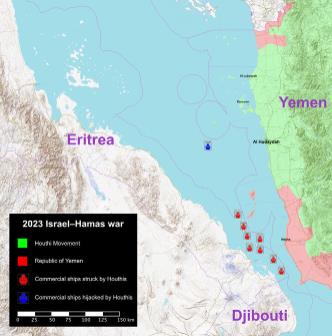
Iraq has been engulfed by dust and sand once again, hospitalizing hundreds and forcing flights to remain grounded. It is Iraq"s eighth sandstorm since mid-April and the red haze reduced visibility to just a few hundred feet in Baghdad and southern Iraqi cities.
Hundreds of people were hospitalized with breathing difficulties according to medical officials, and some state schools and offices have closed Monday.
On May 5, one person died and more than 5,000 people had been admitted to hospitals with breathing problems in Iraq after a seventh severe dust storm in a month.
A Health Ministry spokesman said 2,000 of the cases of "suffocation" had been reported in Baghdad province, according to the official Iraqi News Agency. Dust storms are common in Iraq, but some experts believe they are becoming more frequent due to climate change.
Another storm on Sunday left dozens of people with breathing difficulties and grounded flights at airports serving Baghdad and the Shia holy city of Najaf.
Dust storms mostly hit Iraq in the summer months, when they are often associated with strong winds known as shamal blowing in from the northwest. In western Iraq, shamal-driven dust storms occur mainly in the spring.
Last month, an Environment Ministry official warned that Iraq could face "272 days of dust" a year in the coming decades. The storms are expected to become more frequent due to drought, desertification and declining rainfall.
In recent years, Iraq has seen record low rainfall and summer temperatures regularly exceeding 50C (122F). Iraq"s water reserves are already 50% lower than last year, and the Water Resources Ministry has warned that vital Tigris and Euphrates rivers, which provide most of the country"s surface water, could dry up within 20 years.
Not all droughts are due to climate change, but excess heat in the atmosphere is drawing more moisture out of the earth and making droughts worse. The world has already warmed by about 1.2C since the industrial era began and temperatures will keep rising unless governments around the world make steep cuts to emissions. — BBC












